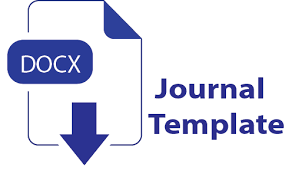MANAJEMEN PENDIDIKAN KARAKTER DI POLITEKNIK AL ISLAM DAN UNIVERSITAS ISLAM NEGERI SUNAN GUNUNG DJATI BANDUNG
Management of Character Education at Al Islam Polytechnic and State Islamic University of Sunan Gunung Djati Bandung
DOI:
https://doi.org/10.38215/jutek.v4i1.60Keywords:
Character, Education, ManagementAbstract
The number of juvenile delinquency cases in Indonesia today ranging from brawls, promiscuity, drugs, and so on has become the author's interest to determine the extent to which character education implementation education has been carried out in several universities in Bandung. This research approach used a qualitative approach with a case study method that observes the sustainability of character education programs at UIN Bandung and Politeknik Al Islam Bandung. Techniques for collecting data through interviews, observations, and documentation. The result showed that that the management of character education program from two tertiary institutions has been running well both with the existence of annual programs, strategic plans and annual final reports to the relevant parties. The supporting factors of the two tertiary institutions were almost the same, namely, the two universities have a religious atmosphere that was thick with Islamic norms and even with almost the same inhibiting factors, namely the development of globalization flows that influenced character development. In order for character education to produce quality graduates in accordance with existing standards and indicators, the authors need to recommend several things, 1) must understand the nature of character education 2) There was involvement of all parties 3) Need for supporting facilities and infrastructure 4) Need communication between the institution and
Downloads
References
Downloads
Published
Issue
Section
License
Copyright (c) 2021 Jurnal Teras Kesehatan

This work is licensed under a Creative Commons Attribution-ShareAlike 4.0 International License.
Authors who publish articles in Jurnal Teras Kesehatan agree to the following terms:
- Authors retain copyright of the article and grant the journal the right of first publication with the work simultaneously licensed under a CC-BY-SA or the Creative Commons Attribution–ShareAlike License.
- Authors can enter into separate, additional contractual arrangements for the non-exclusive distribution of the journal's published version of the work (e.g., post it to an institutional repository or publish it in a book), with an acknowledgment of its initial publication in this journal.
Authors are permitted and encouraged to post their work online (e.g., in institutional repositories or on their website) prior to and during the submission process, as it can lead to productive exchanges, as well as earlier and greater citation of published work (See The Effect of Open Access)













